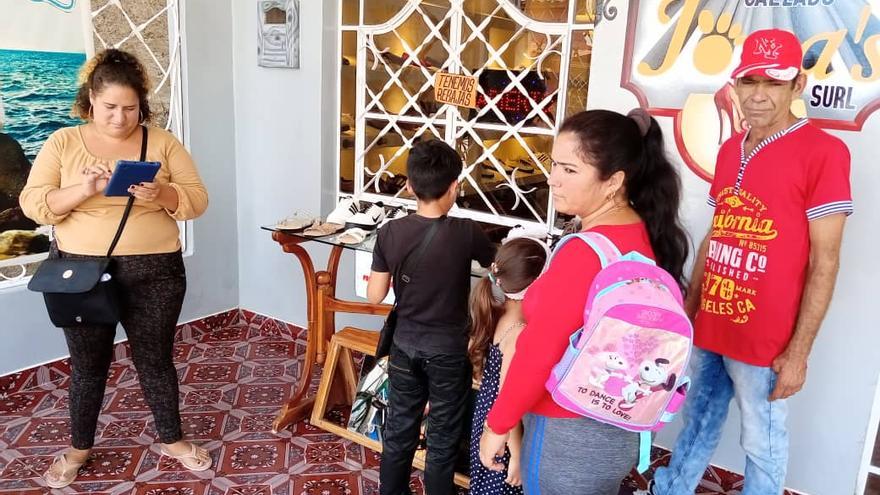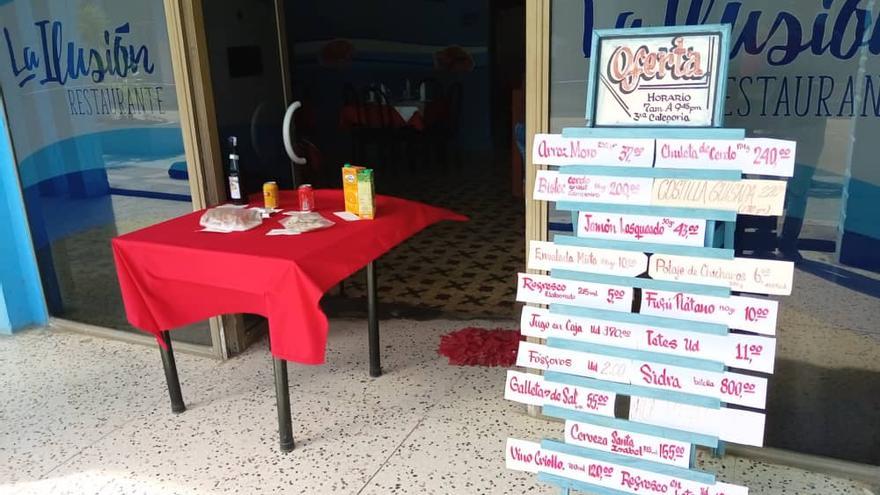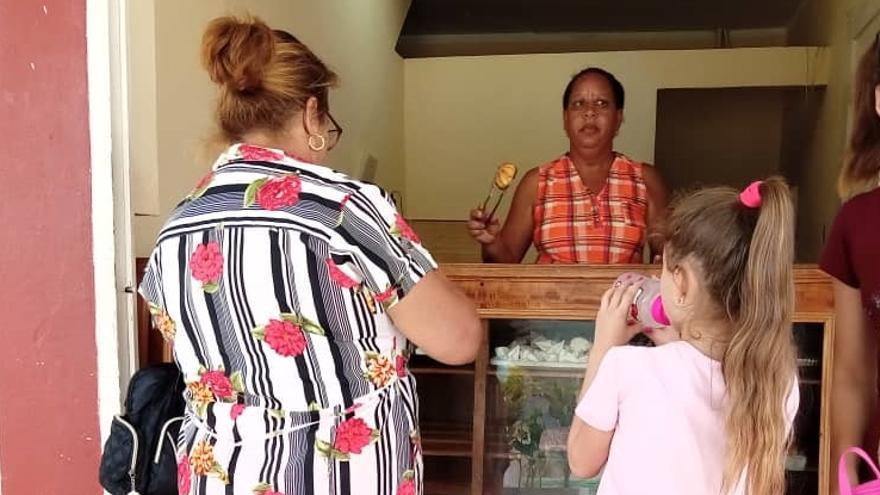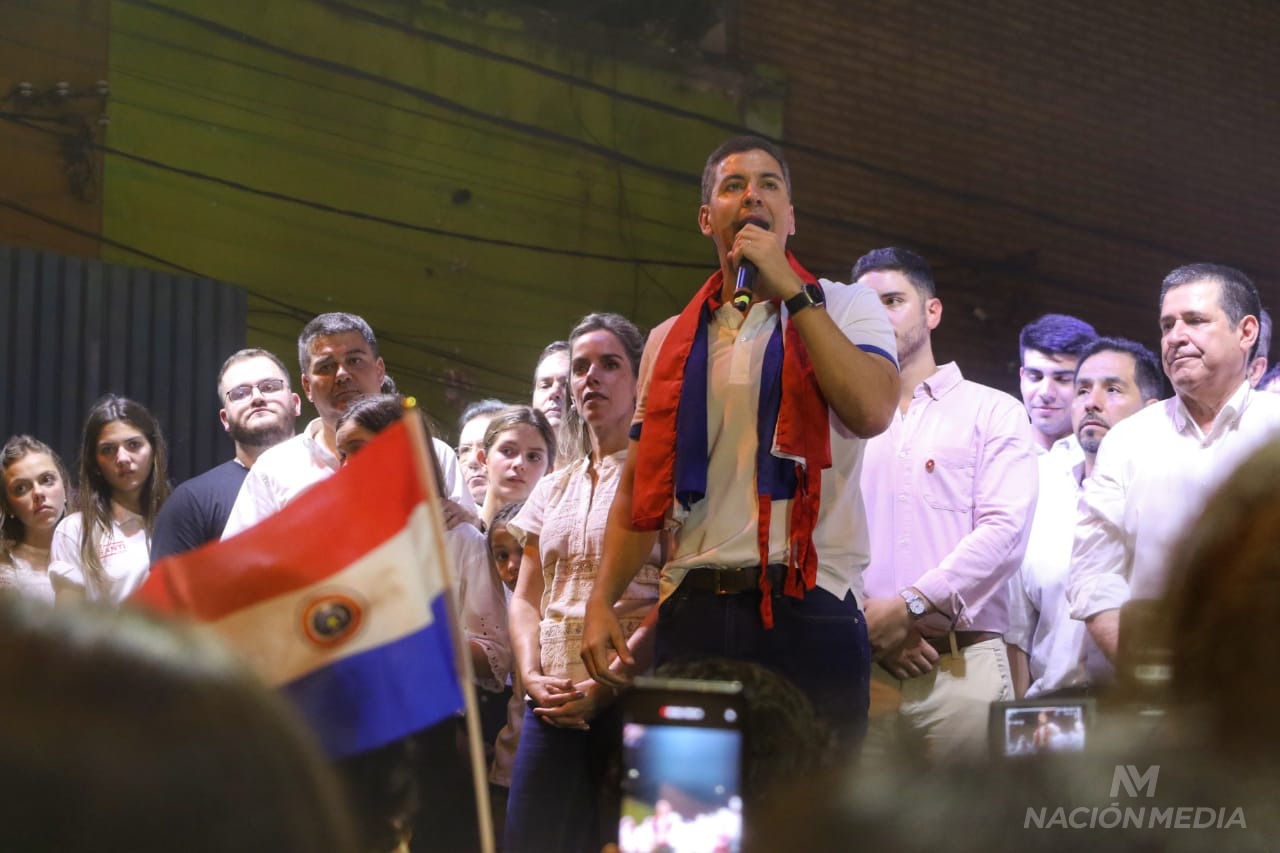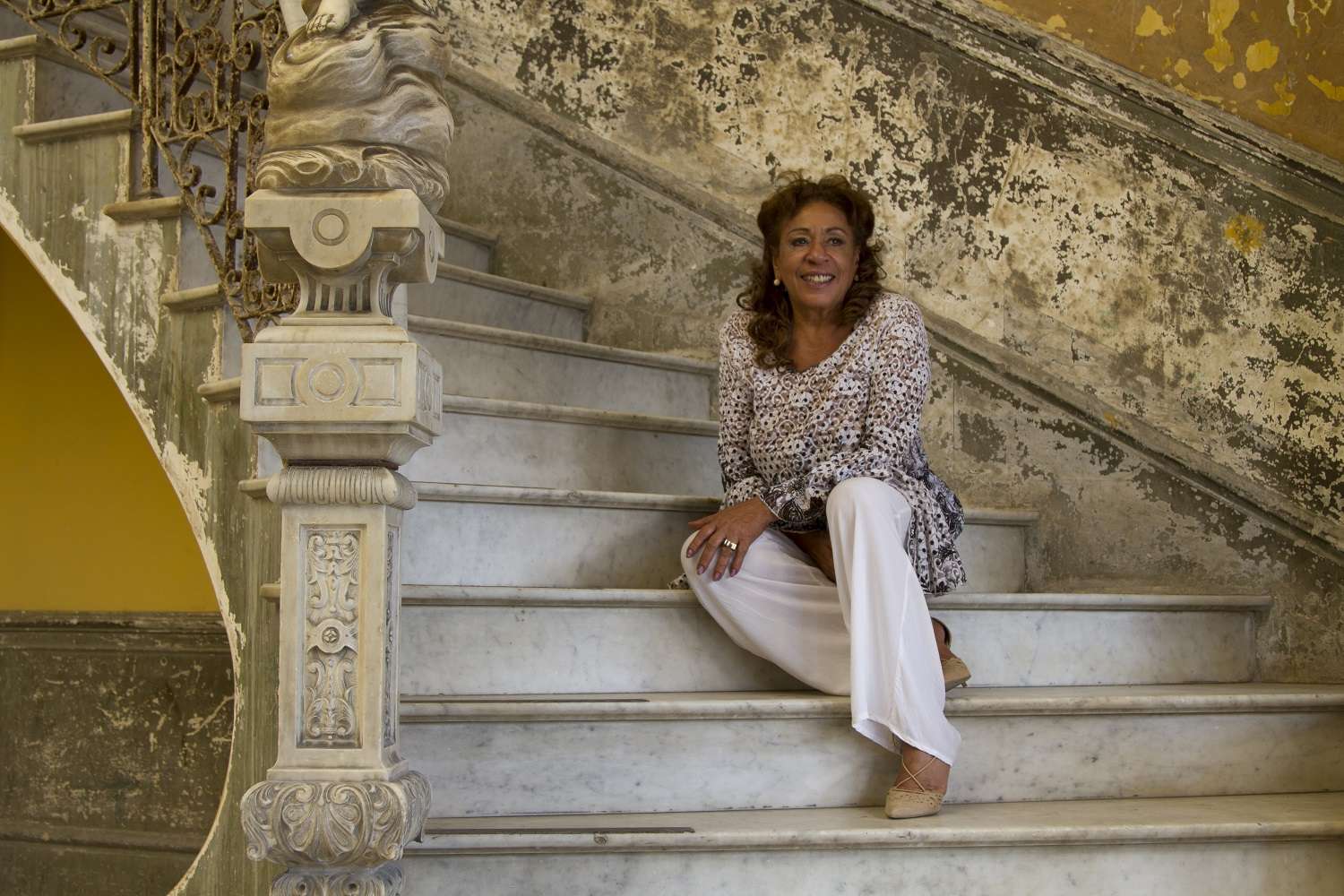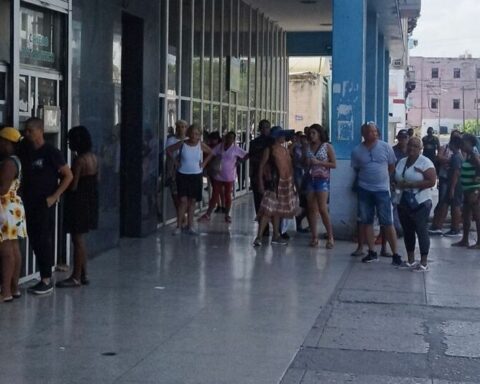In an office abandoned by the State, in front of the Camajuaní park, in Villa Clara, a prosperous shoe store operates today. Where the town’s travel agency used to be, in its terminal phase due to a landslide, will soon open a palate private. Warehouses, cubicles, premises, all “recycled”: the reactivation by MSMEs and self-employed workers in establishments despised by the Government is advancing non-stop.
A nebula of laws, permits and concessions has opened up the possibility of expansion for some businesses. In Camajuaní, a municipality where the power of the “shoe mafia” is indisputable, and in which the success of some farmers and ranchers –with the blessing of Miguel Díaz-Canel himself– seems to be guaranteed, the quality gap that separates a state establishment from a private one is accentuating.
What characterizes these “new rich” from Camajuana? Where do they get the money, supplies and contacts necessary to keep the business afloat? Are they really independent businessmen or a cover for the regime to favor their own to the detriment of the humblest members of the private sector?
“In a country as limited as this, the important thing is to stay focused.” It is the mantra of Omar, who graduated as an engineer from the Central University of Las Villas and now, twelve years later, is about to open a café-bar in Camajuaní. Unable to settle for the paltry salary offered by the State, he decided to put the degree in the drawer and began working in a palate of remedies.
The flow of foreigners, tips and the “change of environment” helped him support his family. He also learned how to run a business and his supervisor liked him, who soon promoted him to manager. However, he had never had enough capital to undertake it himself.
The opportunity came to him when his boss emigrated and lent him the money he needed to start his own project. “The most difficult thing was finding a place,” Omar tells 14ymedio. In 2021, he began locating state-owned properties that were available for lease. The ideal candidate was a dilapidated bar, El Marinero, near his house. The walls were covered in mold, the structure eaten away by moisture, and the roof of the portal collapsed.
The municipal company of Commerce and Gastronomy had been looking for a “godfather” for the mansion for months. Omar, with his papers in order – project, company name, budget, etc. – managed to get it rented after a long analysis by the inspectors. After obtaining the permits, only one “detail” remained: building the café-bar.
“We had to find an architect, open a bank account, obtain authorizations, the construction license and a thousand other things,” lists the businessman. The furniture –several tables with four seats– cost him 198,000 pesos in total. For six stools, destined for the bar, he paid 19,200 pesos.
Your establishment will offer sweets, soft drinks, milkshakes and coffee, as well as pizzas and spaghetti – during lunch hours. “Here a normal soft drink will cost 15 pesos and a can, 150. Tea will be 15, malt 180; a beer, 220; pizzas, 90 -if they are cheese- or 125 if they also have ham; a piece of bread with tortilla, 80, and sweets, between 25 and 50”, he lists.
Added to the obvious difficulties of building a business of this magnitude is the barrage of paperwork that awaits Omar in the future, starting with the National Tax Administration Office (Onat).
Nobody understands why the State keeps open a series of restaurants with no offer in Camajuaní. La Marina –a hovel where the drunkards of the town end up– and the Barcelona pizzeria have privileged positions that they are not in a position to take advantage of. La Barcelona, in the basement of an old hotel in collapse, sells imitations of cheese pizzas for 80 pesos, soft drinks for 120 and guava candy bars for 150 pesos.
Under the same conditions is La Ilusión, the only establishment financed by the State in more or less decent conditions. It offers pork chops at 240, steak at 200, plantain fufú at 10, beer –when there is any– at 155 a can and a portion of congrí rice at 37.
Private companies are on the hunt for spaces like this, although the State is not so generous as to provide any of these establishments that, traditionally, it has kept under its management in Camajuaní. The usual thing is that they offer cubicles in a deplorable situation, on the verge of collapsing.
An example is the office attached to the La Marina restaurant. Extremely poor and unpainted, it came into the hands of the Jireh-Ebenezer MSME, one of the most powerful consortiums in the town in the production of footwear. Since dawn, travelers from the surrounding towns –Santa Clara, Caibarién, Remedios and others– have been queuing up to buy a pair of shoes.
Boots, overalls, and flip-flops make up the main offering, but at several of these locations there is an “alternative” list of items for sale. In a low voice, the employees of these establishments recite the prices: a two-liter bottle of soda, 400 pesos; a package of cookies, 250; a glass of yogurt, 130, and an almost exotic Nutella knob, no less than 1,600 pesos. They also arrived this week Bicycle tires at 2,500 and motorcycle tires at 9,000, files for peasants at 700, juice boxes at 100 and oil bottles at 750. Everything comes from the containers that MSMEs they can buy abroad, and in which other inputs slip to resell them on the Island, with maximum discretion.
Omar and another colleague, dedicated to gastronomy in Camajuaní, agreed to purchase one of the containers that MSMEs are authorized to import. The merchandise they bring is almost exclusively food, but since they won’t be using all of it in their own businesses, they plan to resell the additional content as well. They bring you beers, rum, whiskey, soft drinks, preserves, cans of tomato puree, biscuits. Payment, cash and cash. “With money, skill and a bit of luck, something can be done,” smiles Omar.
Life is not so easy for a well-known candy store in Camajuaní. He sells the señoritas and marquesitas for 25 pesos, the cakes for 20, but the gypsy arm – which when there is good flour comes out impeccably – charges it for 300. “Almost all the raw materials must be obtained to the left“, he admits. “Even if you don’t want to, that’s the way they force you to work in this country.”
Its owner regrets that, although the self-employed have been asking for it for decades, there is still no wholesale market for the purchase of inputs. “Some baker helps me sort out flour, or else I end up buying it from Revolico. But there isn’t a stable supply,” she says.
There is a place in town where they live, wall to wall, a private establishment and another state establishment. These are the promising cafeteria La Fortuna, about to open, and the dilapidated restaurant La Riqueza. The first, freshly painted and with new furniture; the second, of unstable offers and poor care. Both are located on Independencia street.
La Riqueza had a small outdoor counter, where those waiting for transportation to go to neighboring towns, such as Vueltas and Remedios, killed time drinking coffee or soda. It hasn’t sold one or the other for months, and travelers prefer to cross the street, where other palates They have already absorbed several state premises.
But don’t be fooled. The private business ecosystem is far from offering an ideal service. In addition to the scarcity of products, customers note that the “inheritance” of state management often prevails: mistreatment, scams, and poor quality characterize many bars and restaurants. Although, despite everything, the clients of Camajuaní –or of any other town on the Island– have no doubts about which establishment they would choose, if given a choice between La Riqueza and La Fortuna.
________________________
Collaborate with our work:
The team of 14ymedio He is committed to doing serious journalism that reflects the reality of deep Cuba. Thank you for accompanying us on this long road. We invite you to continue supporting us, but this time becoming a member of our newspaper. Together we can continue transforming journalism in Cuba.


